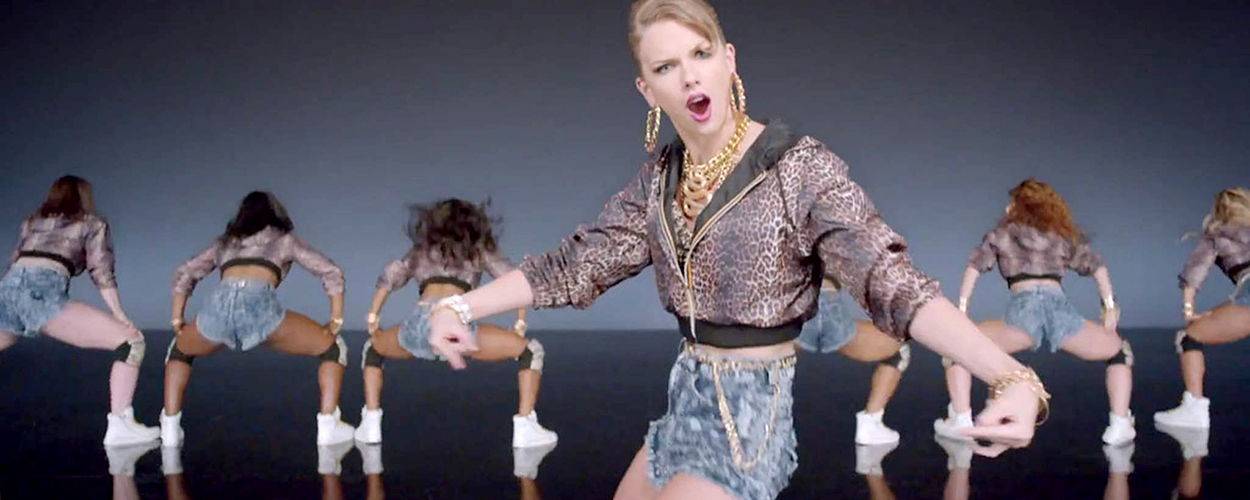This website uses cookies so that we can provide you with the best user experience possible. Cookie information is stored in your browser and performs functions such as recognising you when you return to our website and helping our team to understand which sections of the website you find most interesting and useful.
Artist News Business News Labels & Publishers Legal Top Stories
Judge again refuses to dismiss Shake It Off song-theft lawsuit against Taylor Swift
By Chris Cooke | Published on Friday 10 December 2021

A US judge has again declined to dismiss the long-running ‘Shake It Off’ song theft lawsuit, meaning that the songwriters who allege that Taylor Swift’s 2014 hit rips off a song they wrote in 2001 should now be able to have their case presented to a jury.
This particular song-theft dispute has already been on quite the journey. Sean Hall and Nathan Butler first went legal in 2017, claiming that ‘Shake It Off’ rips off their 2001 song ‘Playas Gon Play’. That track contained the lyric: “The playas gon play/them haters gonna hate”. And in her hit, Swift famously sings: “the players gonna play, play, play, play, play/And the haters gonna hate, hate, hate, hate, hate”.
The following year judge Michael Fitzgerald dismissed Hall and Butler’s lawsuit, concluding that their 2001 lyrics about ‘playas’ playing and ‘haters’ hating were simply “too banal” to enjoy copyright protection in isolation, which meant Swift had not infringed any copyrights with her very similar lyrics.
However, Hall and Butler then took their case to the Ninth Circuit appeals court, and in 2019 judges there criticised the lower court judge for reaching such a speedy conclusion on the all important question of whether or not the two key lines of ‘Playas Gon Play’ could be protected by copyright.
As a result, the whole matter was sent back to Fitzgerald’s court for take two. Since then Swift’s team have been trying very hard to get the case dismissed for a second time, but Fitzgerald has seemed very reluctant to do so based on the previous criticism from the Ninth Circuit.
He declined to dismiss the lawsuit in September 2020 and – a year later – when discussing yet another motion for dismissal, he indicated that new arguments presented by Team Swift hadn’t done much to change his mind. That was confirmed by the judge’s latest ruling yesterday.
Swift’s case basically centres on two arguments. First, that generic statements about players playing and haters hating do not contain enough originality to be protected by copyright and are therefore public domain. And second, even if Hall and Butler’s lyrics were protected by copyright, Swift’s lines are not sufficiently similar to them to constitute copyright infringement.
Back in September, Fitzgerald admitted that he thought the Swift team’s arguments were “really strong”. However, the question is, are they sufficiently strong for the judge to throw out the case at this stage or should those strong arguments be made before a jury? Or maybe the real question is – given the Ninth Circuit overturned Fitzgerald’s previous dismissal of the case – have Swift’s arguments sufficiently evolved since the appeals court considered the dispute?
And the answer to that latter question is, well, “no”. On the originality and public domain point, Fitzgerald’s new ruling states: “The Ninth Circuit already acknowledged that, at minimum, plaintiff’s characterisation of the work at issue – ie ‘a six-word phrase and a four-part lyrical sequence’ from ‘Playa’ – was enough to sufficiently allege originality”.
And, “as discussed at the hearing, defendants have not shown that circumstances have changed since the Ninth Circuit opinion: originality is sufficiently shown, when viewed in the light most favourable to plaintiffs, even if the phrases [in isolation] are in the public domain”.
As for the similarity between the two songs, Fitzgerald notes the Ninth Circuit’s position that issuing a summary judgement on that question is only appropriate “if the court can conclude, after viewing the evidence and drawing inferences in a manner most favourable to the non-moving party, that no reasonable juror could find substantial similarity of ideas and expression. Where reasonable minds could differ on the issue of substantial similarity, however, summary judgment is improper”.
And, he adds, the plaintiffs have stressed how, “even though there are some noticeable differences between the works, there are also significant similarities in word usage and sequence/structure”, which means – the plaintiffs argue – “factual issues remain as to whether the choruses of the two songs are sufficiently similar and whether the differences in the choruses overcome those similarities”.
With all that in mind, Fitzgerald concludes: “Given the obligation to view the record in the light most favourable to plaintiffs, genuine issues of triable facts remain as to substantial similarity”.
Which means – unless there’s a sudden out of court settlement – this whole dispute should now head to full on jury trial. Good times.





